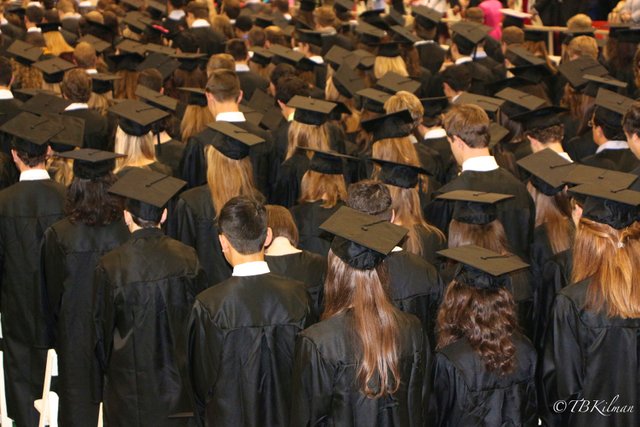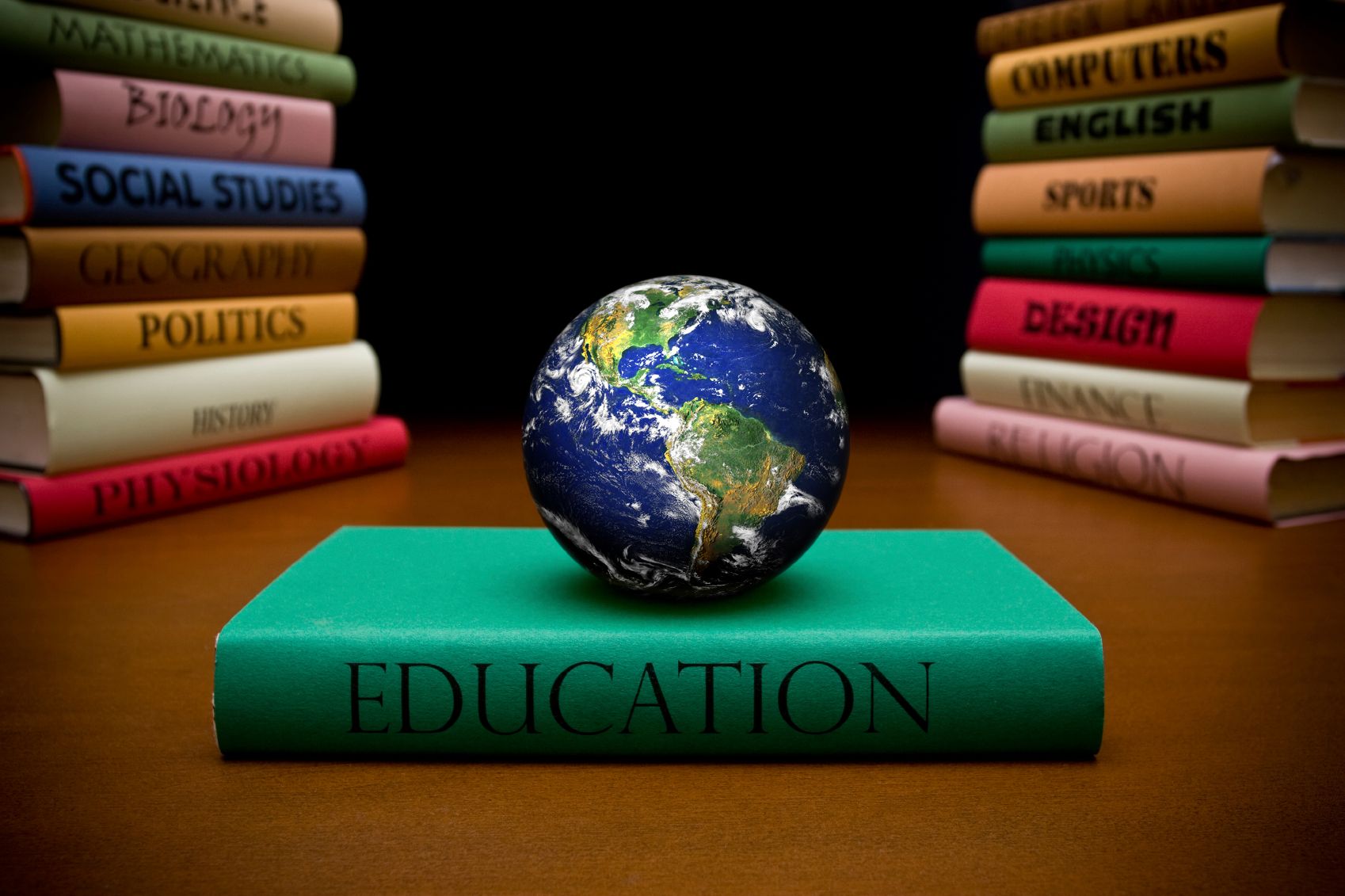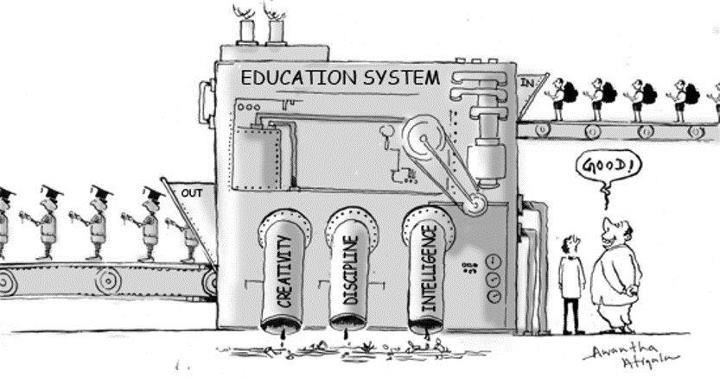Suggestions for an Efficient Education Reform
Modern education is seriously outdated. A system that actually served a purpose about a hundred years ago, is now slowing us down instead of boosting us up. Our educational system fails to adapt and align with the new societal needs that came with the exponential growth of technological advances.
How did this start?
Some decades ago, literacy was a luxury enjoyed by a few people. High school education was rare, universities were only useful for particular professions that required an extensive amount of specialized knowledge, and PhD’s were reserved for the few bright (and rich) people that chose to become medical doctors or university professors. My grandmother, for example, only finished primary school and was then forced to quit in order to work in the fields.
With the rapid technological advance and a mass migration to the cities, field jobs kept getting replaced by jobs in the service sector, with businesses and offices flourishing everywhere. In order to be able to launch better jobs than themselves in an environment of growing competition, parents around the world did the best they could to send their kids to colleges and universities.
College and universities saw a massive income pouring in and turned their learning institutions into profit-making companies. New universities sprouted everywhere. I remember that when I was a kid, there was only one university in my small island. It had really high admission standards and was very difficult to get in, even for the best students. Within the time frame of a decade, three more universities have been established, and even the first one lowered its standards impressively.
At first the whole scheme seemed to work and the higher the degree, the better job one could launch. However, what happened in the end was that since everyone ended up going to college, every graduate was at about the same level as everyone else. In the end, people just ended up adding an extra four to six years of compulsory preparation in order to be able to get a decent job.
Is the prolonged duration really worth it?
Unfortunately, we have ended up increasing quantity instead of quality. This is not to say that there are no institutions that offer quality content. However, all schooling levels from primary to college mostly offer outdated courses based on what *used* to be useful for older generations.
In older times, people used to learn practical skills at home. Their parents taught them how to plant, cook, build, sew. Only a few decades ago people planted their own food and produced their own dairy products. They kneaded their own pasta dough and baked their own whole-wheat bread. They extracted active ingredients from plants and herbs for medical purposes. They cut their own wood and built their own houses. If something broke down, they knew how to repair it. They had a bit of all basic skills.
What simple people didn’t have any contact with was humanities, history, advanced mathematics, economics, arts. There was no way to learn all these as there was no internet too look up books, articles and concepts, and libraries were poor with only local and usually non-reviewed content.
Today, we observe the exact opposite phenomenon. If there was any big misfortune to happen right now (war, natural disaster, big financial crisis) and we had to survive on our own it is very doubtful whether we would make it. Most of us don’t even know the basics of planting a potato. We have closed to zero practical skills. On the other hand, we have easy access to the internet where we can look up all the books, research and published content, supporting a variety of opposing views on a wide arrange of topics. We can pretty much learn everything online, apart from practical skills that require manual work in labs.
Catering the needs of society
Our school system is way too focused on theoretical subjects. More hours than necessary are dedicated to latin, ancient greek, literature, management, psychology, religious studies, gender studies, leaving zero time for important skills that are no longer taught at home such as planting, building, carpentry, cooking, and plumbing, as well as basic pharmaceutics and basic reparation of cars and electrical devices. These are skills that people used to learn at home, but times have changed and the educational system is not adapted. Instead, we go to school to learn things we could very easily learn at home through online or distance courses!
I’m not saying that humanities should be entirely dismissed nor am I suggesting sacrificing the cultivation of critical thinking and theoretical concepts for the sake of a technocratic system. But it’s really absurd for a person mastering everything else first, apart from the basics of survival. It's really strange spending 12 years in school and not being able to survive on basic skills that everyone should know.
All these theoretical lessons could actually be compressed in an composition-expression-critical-analysis course pack, with interactive dialogues and active participation of all students. Students could examine linguistic discourses, ideologies, religious beliefs and world dynamics. They could learn to decipher the underlying messages of a text and be able to recount its content in their own words. Finally, they should be able to add their own opinion backed up by arguments. This is a nice way to sharpen the mind about all topics and gain a broader perspective.
Practical outcomes for a sustainable growth
Say that you want to open your own enterprise and be successful. But how exactly are you going to do that if you always depend on others for the most simple tasks? If your tap begins to leak, you will need $100 to fix it. You will then need another $50 per unit to service your air conditioning. You will want to buy simple lockers for your employees and you’ll have to take the expensive $400 deal because you don’t even know how to drill a hole on a cupboard to put a locker on! Your hard disk will fill up and you will need an IT guy to delete all the unnecessary files; you will buy a printer and you’ll need to call him up again to synchronize it with the computer.
All these services are now monopolized because nobody knows how to deal with them, even the simplest of their tasks. Instead of all this, you only focused on advanced accounting and management during your studies. I get it, those are useful too, but what about a balance? What about the loss part of Profit and Loss?
Changing the learning style
Modern education serves mostly the state system instead of individual development. The point of learning is not to learn how to memorize facts, but to learn how to learn. Critical analysis is almost never trained and teachers are happy when students simply acquire information; whether they can actually process it or not is irrelevant. A proper education would combine content, thinking skills and personal development. We need less course compartmentalization and more interactive participation through discussion, science and technology projects, and the use of technological tools.
I have recently stumbled upon a great example -still on an experimental stage- of how education could be much more interactive and promote personal growth. The founder of Khan Academy, Sal Khan, has recently founded the Khan Lab School, which comprises of flexible, non age-fixed academic groups adapted on each individual’s learning speed and needs. A concept has to be well-understood no matter how much time it takes, so as to avoid knowledge gaps. The school curriculum comprises by a course on language and critical thinking skills, just as mentioned above, and it then focuses on science and computer skills which are acquired in a project-based learning approach using a variety of innovative tools. Finally, it has a wellness program which includes art, music and exercise.
This is the first school that I have personally heard of which aligns with the demands of modern society. Hopefully, there will soon be many more!






can't agree more when you say we have improved quantity not quality and this is exactly how I think about my kid. He has so much homework nowaday and he can't even enjoy the time to do other stuff. But when I ask him what have you learnt, he is looking at me confused.
That's true. There is no point in memorizing a bunch of stuff if they are going to forget it the day after. It's better to learn less, but better. Learn how to learn by themselves, then each can take their time and use their own style.
Personally, I don't think our education system gives us the best. I believe education should nurture u to bring from within right from the scratch but ours isn't like that. U only absorb without being thought how to add intuition. School is scrap. Nevertheless we can't throw it away. I like ur write-up @elemenya
Thank you, @tj4real. You put it really nicely. We are missing the intuition of how and why things work. We can't entirely dismiss education, but we can definitely improve it!
I think people in the future will look back at our educational system and wonder whether we were trying to educate or brainwash.
Great article. Keep them coming
I think future people will view our education system the way we view ancient civilizations training, such as Sparta :p
most likely.
Upon reading "The Underground History of American Education" (J.T. Gatto) I have come to the conclusion that it is no coincidence that our education system produces compelling evidence towards "brainwash".
It sounds like an interesting book. I will look it up. It's funny, if you look up the term "brainwash", it comes up with the following definition: "pressurize someone into adopting radically different beliefs by using systematic and often forcible means". So yeah, I guess it is brainwash!
This post received a 21% upvote from @randowhale thanks to @kyriacos! For more information, click here!
Congratulations @elemenya! You have completed some achievement on Steemit and have been rewarded with new badge(s) :
Click on any badge to view your own Board of Honnor on SteemitBoard.
For more information about SteemitBoard, click here
If you no longer want to receive notifications, reply to this comment with the word
STOPBy upvoting this notification, you can help all Steemit users. Learn how here!
I believe that the education system is corrupted by greed and many other practices such as tenure which just rewards longevity rather than quality. The widespread use of consolidation to save money on teachers while board members and superintendents receive salary increases forces education to be a cookie cutter or assembly line approach which most individuals have trouble adapting to so they get left in the cold. And no, the "No child left behind" program is more of a failure than a success because it forces the children who could or want to excel to perform at sub par levels.
Honestly the only approach I feel would work is to homeschool during the early years and then the student becomes an apprentice in the field they want to pursue where they can be exposed to the real world rather than the illusion that the school system wants to portray.
There could be a modern version of homeschooling, with distance-learning through online programs and exercises, and maybe some workshop days where kids could attend practical courses at a local community center. Personally I believe that socialization with other kids is important too, so some workshops or interactive seminars would be a useful addition to homeschooling.
Yes, I agree. When we homeschooled our children, there were activities with other groups that were always included such as a weekly community science class, frequent field trips and involvement with various local social events such as volunteering as a family.
I feel that too often though our society is so intent on providing contact and interaction with peers that contact with adults is neglected which results in immaturity and lack of respect for others.
Excellent article !
That's the way we go :)
Thanks a lot! :)